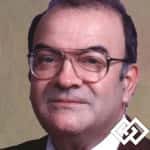Cardiovascular Surgery Delayed Due to Hospital Scheduling Error
Updated on
Case Overview
This case involves a forty-seven-year-old male who presented to the ER with complaints of debilitating chest pain. The patient became hypotensive and bradycardic in the ER and developed seizure activity that lasted several minutes. The patient was given Atropine and Dopamine, was intubated, and taken to the catheterization lab. In the cath lab, the patient was found to have a 99% left main artery occlusion along with 100% occlusion in the LAD. At the time of the procedure, the patient’s ejection fraction was found to be 20% and it was determined that the patient required immediate open-heart surgery. He was temporarily placed on a balloon pump to bridge care as surgery could not be initiated due to a lack of an emergency operating room being available. Shortly after the catheterization procedure, the patient sustained prolonged ventricular fibrillation and a stroke ensued. The cardiovascular surgeon noted the cardiac event in his operative report. Following the CABG procedure, the patient was sent to a nursing home facility with a LVAD and an RVAD in place. While under nursing home care, the patient developed a clot in his LVAD and it took the staff more than 24 hours to transfer the patient back to the hospital after identifying trouble with the device. The patient died several days later due to complication from the LVAD implantation.
Questions to the General Surgery expert and their responses
What is the purpose of an LVAD/RVAD device implantation?
Ventricular assist devices are a means of artificial mechanical circulatory support that can be used to dampen the cardiogenic shock the patient seemed to be experiencing and is always used as a bridge to transplant therapy (BTT).
What are the accepted complications of use?
Complications of the LVADs and other extracorporeal support are related to bleeding or thrombosis and cannula obstruction or misplacement. These can be minimized by close attention to surgical hemostasis, postoperative anticoagulation levels, and serial monitoring of pump speed and flow.
About the expert
This board certified cardiothoracic surgeon currently practices in both a clinical and academic capacity at among the nation's top medical institutions, and has also pursued major grant funded research endeavors. He also has over 50 years of experience in his field, has over 100+ publications and presentations, and specializes in pacemaker and defibrillator implants.

E-004775
Specialties:
Subscribe to our newsletter
Join our newsletter to stay up to date on legal news, insights and product updates from Expert Institute.
Sign up nowFind an expert witness near you
What State is your case in?
Subscribe to our newsletter
Join our newsletter to stay up to date on legal news, insights and product updates from Expert Institute.


